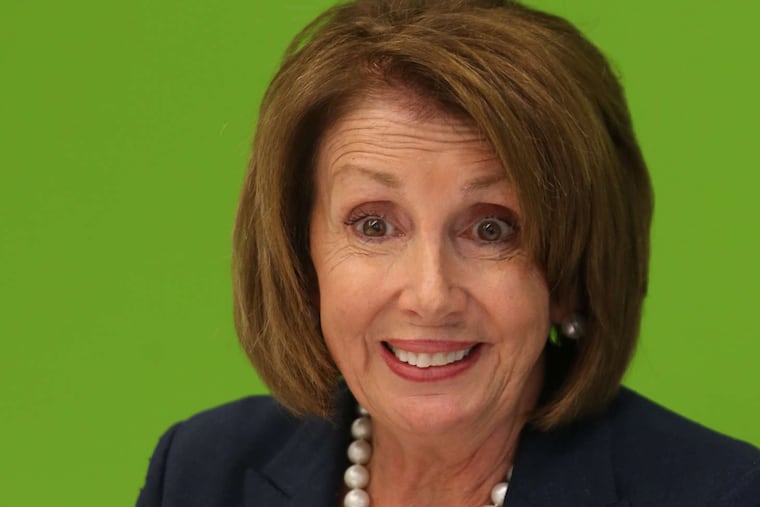Pelosi touts Philadelphia's pre-K plan
Philadelphia's new pre-K program is a model for the country, House Minority Leader Nancy Pelosi (D., Calif.) said Tuesday at a meeting with local providers and elected officials who stressed the need for more state and federal funding to further grow the initiative.

Philadelphia's new pre-K program is a model for the country, House Minority Leader Nancy Pelosi (D., Calif.) said Tuesday at a meeting with local providers and elected officials who stressed the need for more state and federal funding to further grow the initiative.
"Something great is happening in Philadelphia when it comes to universal pre-K for our children," Pelosi said at a roundtable event hosted by the nonprofit advocacy group Public Citizens for Children and Youth. "I hope that you'll be able to get enough resources to make it available to all."
Gov. Wolf, Mayor Kenney, and State Rep. Dwight Evans (D., Phila.) attended the roundtable along with about 50 audience members to discuss how local, state and federal partners can get more 3- and 4-year-olds into quality pre-K classrooms.
Last month, Philadelphia launched enrollment for 2,000 new pre-K seats, to be funded by a 1.5-cent-per-ounce sugary drink tax, effective Jan. 1.
While the city's plan will greatly increase the number of children with access to pre-K, it won't cover all pre-school-age kids in Philadelphia unless state and federal partners increase funding as well.
The city hopes to add 6,500 seats in the next five years, and is hoping for more state and federal dollars to cover about 7,900 kids who would still be without quality pre-K by 2019.
The city recently defended the legality of the tax to pay for pre-K expansion in court. A judge is expected to make a ruling before Jan. 1.
Kenney said the legal proceedings should not deter parents from enrolling their kids.
"Keep moving forward," Kenney said. "Until someone tells us we can't do it, we're moving forward and those seats will be there in January."
He would not say whether he has a contingency plan should the city lose the court battle.
The subject of soda taxes also came up at the roundtable with Pelosi, who said she supports one-cent-per-ounce beverage taxes on the ballot next week in San Francisco and Oakland, Calif.
"We expect to win despite enormous amounts of money being poured in" by the soda industry, Pelosi said.
At the federal level, Pelosi said President Obama supports a universal pre-K plan, funded by a cigarette tax, but the program has not gained support in Congress.
At the state level, Wolf pledged to reintroduce an "ambitious" early childhood education plan in his next budget proposal.
Last year, Wolf proposed $60 million for early childhood education. The Republican legislature approved half of that.
"This is a long-distance run, not a sprint," Wolf said.
"Sooner or later I think the people in Harrisburg will understand ... it's the right thing to do. It's the smart thing to do, and if we don't do it we're going to pay for it three or four times over in incarceration."
The appetite for pre-K spending has increased and become more bipartisan in recent years, said Janet Haas, chair of the board of directors of the William Penn Foundation. The foundation has done extensive research on pre-K access in Philadelphia. It gave a $15 million grant to the city's pre-K program.
"Fifteen years ago, Pennsylvania was one of nine states that spent zero on early childhood education," Haas said. "We know that things can change."
215-854-5506 @juliaterruso